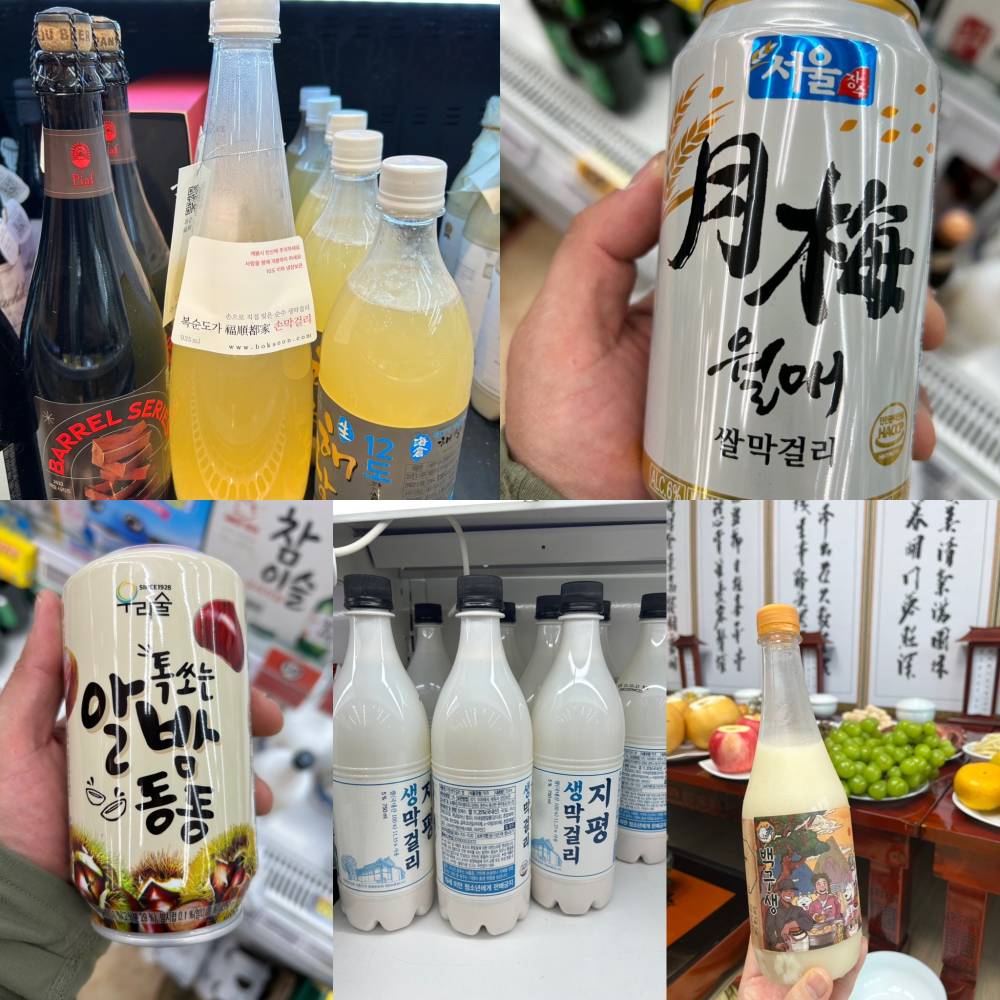
You’ve probably heard of Makgeolli or seen it featured in K-dramas or on Netflix, and now, you’re eager to give it a try.
Imagine this: you’re in Korea, looking for some snacks and a refreshing drink. As you open the fridge, you spot a large bottle, either white, green, or transparent, with a milky appearance.
Well done, you’ve just stumbled upon Makgeolli! Why not give it a shot? You might really enjoy it and end up having quite a bit, or perhaps you’ll take a sip and wonder what all the fuss is about.
To satisfy your curiosity, we’re here to unveil all the different categories of Makgeolli you’ll encounter in Korea, ensuring that you can enjoy a more tailored and enjoyable drinking experience. Who knows, you might just become a Makgeolli enthusiast yourself! Cheers!
The Easy to Find & Most common Makgeolli
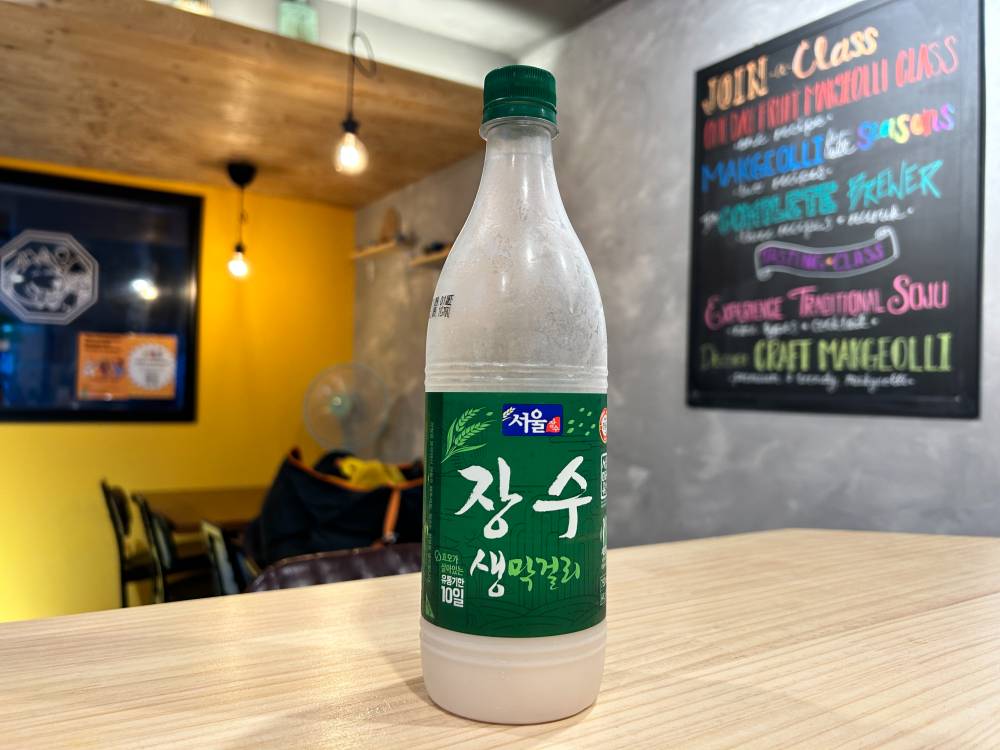
This particular Makgeolli is readily available in convenience stores and supermarkets, typically priced at less than 2,000 won. It’s characterized by the presence of aspartame and other artificial sweeteners, which give it a light, carbonated, and sweet taste.
However, it’s important to exercise caution with this variety. Excessive consumption can lead to unpleasant headaches, primarily due to the artificial sweeteners and additives used in these types of Makgeolli.
The readily available Makgeolli you find doesn’t use traditional wild yeast nuruk. Instead, it’s fermented with different enzymes that break down starch. To convert it into alcohol, yeast needs to be added. Additionally, citric acid and various other additives are used to achieve the final taste.
Regarding the ingredients, commercial Makgeolli in this category often uses low-quality rice and even something called “팽화미” (penghwami), which is popped rice. There are various reasons for this, but to simplify, using freshly milled rice would cost more for large commercial manufacturers.
The Flavored Ones
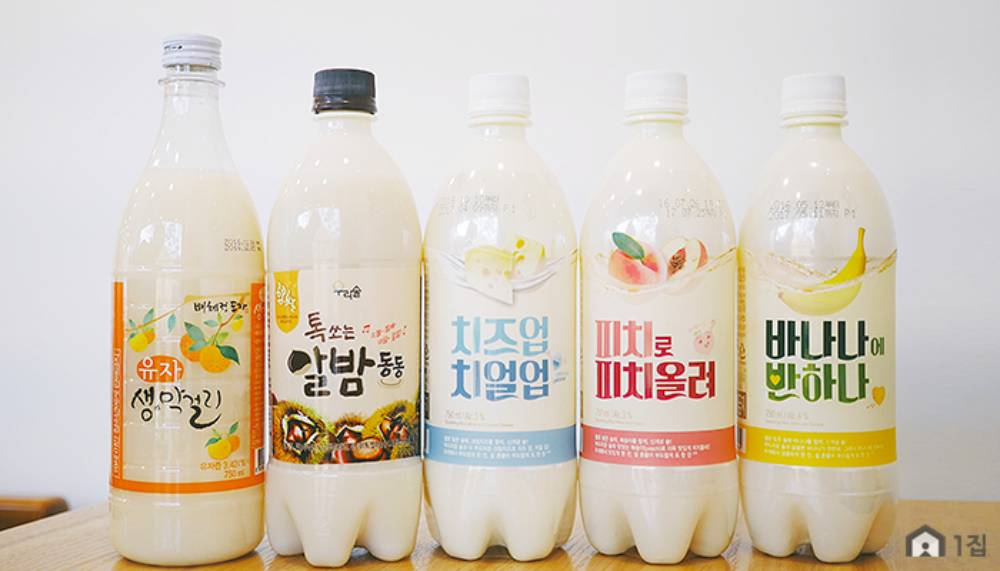
If you enjoy flavors like banana, chestnut, peach, and other overly sweetened Makgeolli varieties, it’s important to note that you’re not really experiencing traditional Makgeolli. In Korea, all Makgeolli falls under the category of “탁주” (Takju), which translates to cloudy alcohol. However, these excessively sweetened Makgeolli bottles belong to a different category, labeled in Korean as “기라 주류” (Gita Juryu), meaning “Other Alcohol.”
Why is this distinction made? Well, as soon as you introduce additives that enhance the aroma of Makgeolli, it’s no longer considered authentic Makgeolli. These companies often use similar bottle designs as traditional Makgeolli, which can be confusing for consumers.
You can find these sweetened Makgeolli varieties in convenience stores and supermarkets across Korea. In my opinion, it can be challenging to appreciate or pair this type of Makgeolli with Korean food because it’s so sweet that it doesn’t easily complement the flavors of traditional dishes.
Pasteurized Makgeolli
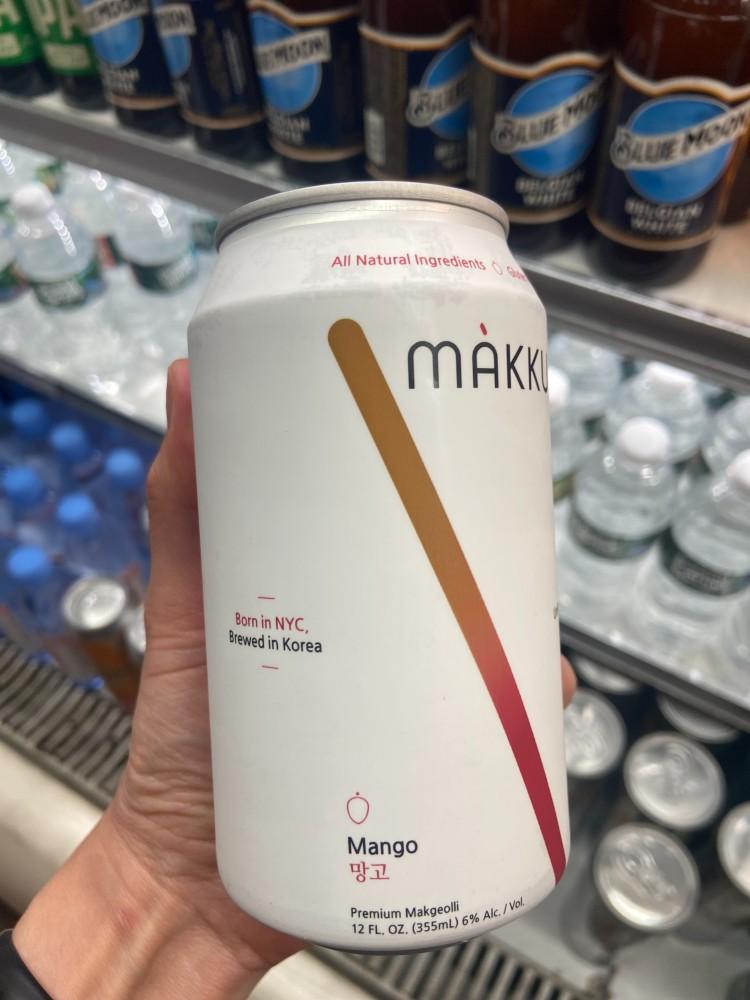
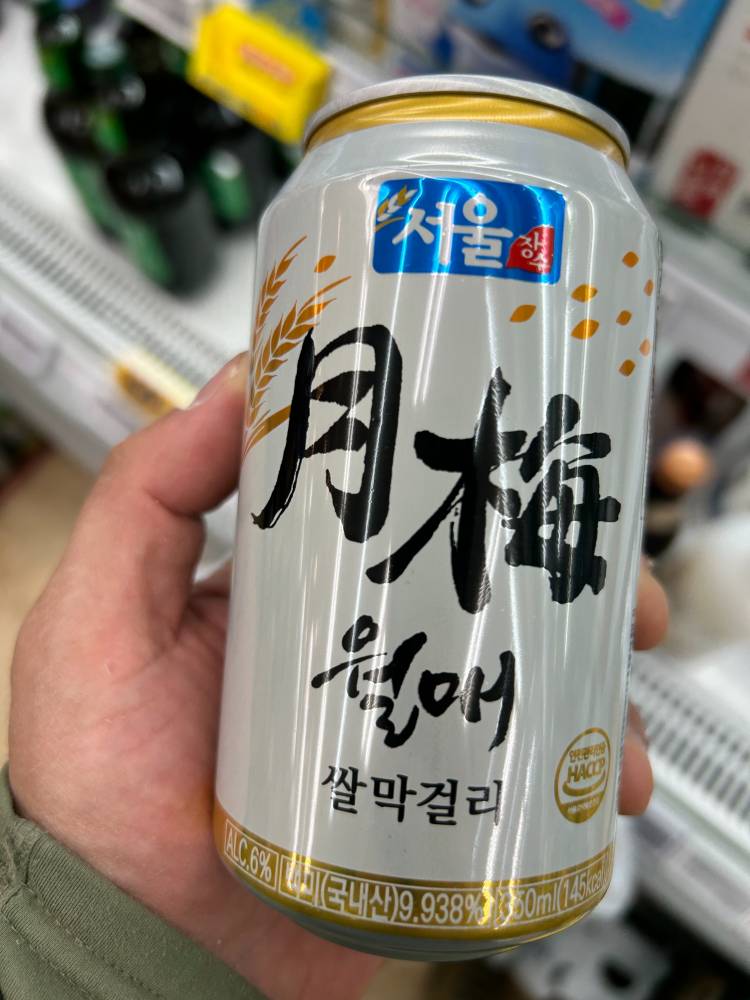
Exporting Makgeolli overseas can be a challenge due to its unfiltered nature and susceptibility to temperature fluctuations, which can impact its quality. To address this, Makgeolli is often pasteurized before export, giving it a shelf-life of approximately one year.
However, it’s important to note that pasteurization can lead to the loss of some of the benefits that make Makgeolli appealing, such as its probiotics and amino acids that are beneficial for gut health.
Additionally, pasteurized Makgeolli tends to have a thinner texture and can be overly sweet compared to the traditional unfiltered variety.
"The Biggest Misconception about Makgeolli is that it's always overly Sweet and Carbonated. That's very far from the truth"
Joe Kim
The No Aspartame but "Better" Sweeteners
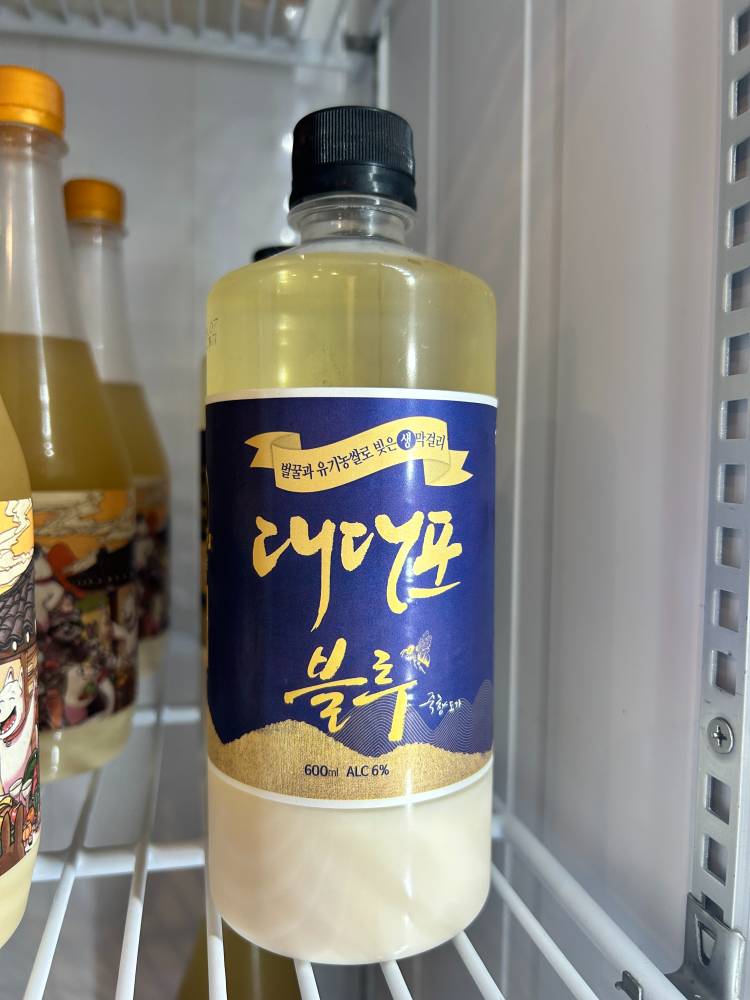
While living in Korea and enjoying Aspartame Makgeolli for a couple of years, it was refreshing to witness a trend of Makgeolli that didn’t rely on Aspartame for sweetness. One of the pioneering commercial breweries in this regard was 느린마을 (Neurin Maul), which translates to “Slow Village.”
Having Makgeolli that wasn’t overly sweet and didn’t contain Aspartame was a relief.
However, can we consider this type of Makgeolli traditional?
Many of the trending Makgeolli varieties at the moment indeed do not use artificial sweeteners. Instead, they utilize powerful enzymes like “바이오 누룩” (bio-nuruk). These types of Makgeolli are more aligned with the commercial or modern approach to rice wine making, as they do not rely solely on wild yeast or traditional nuruk.
One of the primary reasons for using these different enzymes is quality control. As a brewery owner, I typically don’t brew more than 50kg batches at a time and rely solely on wild yeast. While experience and quality control can make this work, it can be risky when outsourcing nuruk consistently. On the other hand, using these potent enzymes with high saccharification power makes the process easier and less risky.
In terms of flavor, these Makgeollis tend to be good but more straightforward in terms of flavor notes—often somewhat sweet or bland. They lack the complexity and fermented character of traditional Makgeolli.
Traditional Makgeolli
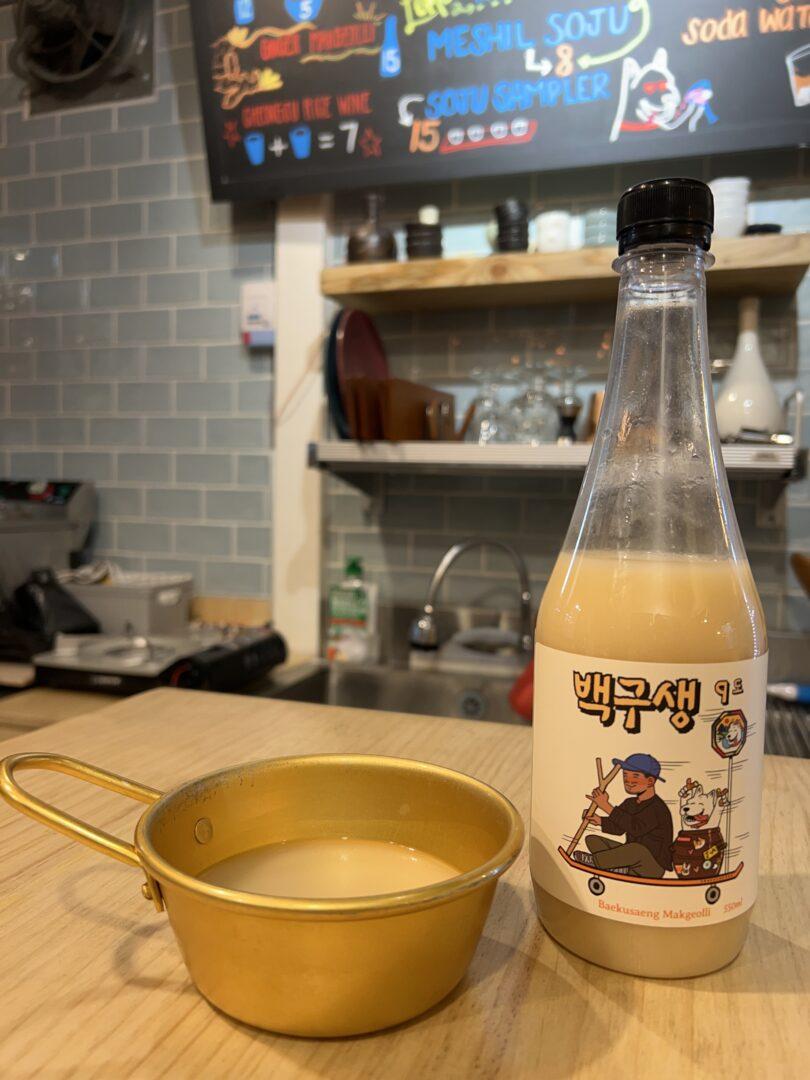
My absolute favorite Makgeolli, enriched with history, tradition, and, above all, an abundance of flavor. It’s a true art form that was nearly lost during the period of Japanese colonization. The extent of its richness is so profound that even many local Koreans remain unaware of the real potential and delightful taste of Makgeolli.
The beauty of Traditional Makgeolli knows no bounds. It can be sweet, sweet yet sour, savory, or even slightly bitter. Its texture can range from thick to thin, depending on the choice of rice or the rice-to-water ratios used in its preparation.
I wholeheartedly recommend trying various types of traditional Makgeolli. The best part is that since it doesn’t rely on artificial sweeteners, you can indulge to your heart’s content without fearing a harsh and painful hangover. Cheers to the true essence of Makgeolli!

